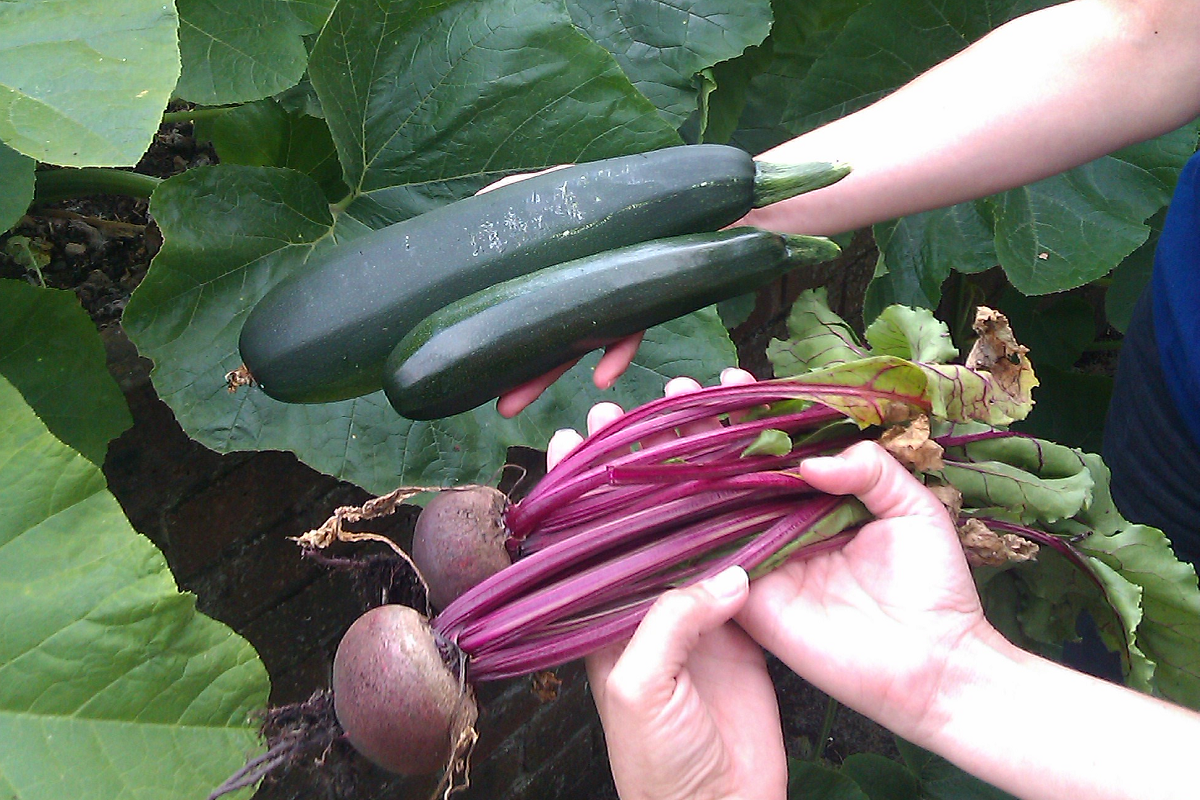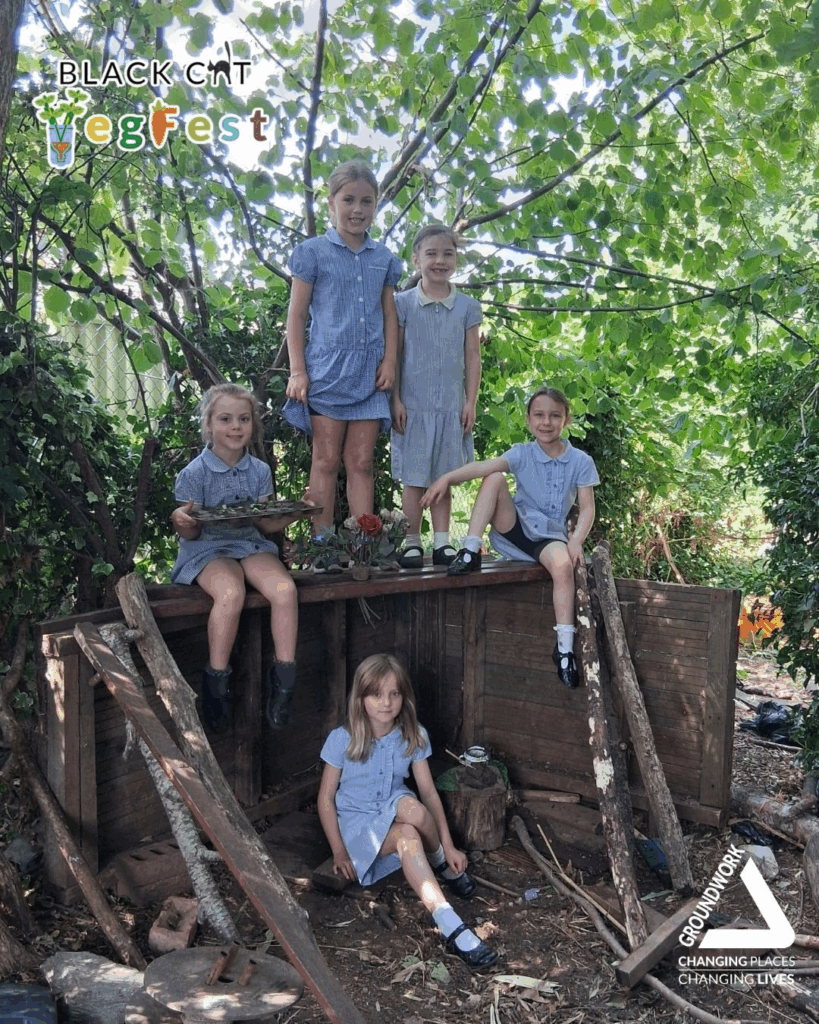Primary school children in Cambridgeshire recently celebrated the end of a huge project with a special event held at Little Paxton School in St Neots

During the academic year, students at eight participating schools improved or created outdoor growing areas, for children to get involved in planting, nurturing and harvesting edible plants. They had the opportunity to get their hands in the soil, experience the life cycle of plants, take care of them as they grew and then tasted the fruit and vegetables they produced. Participating schools included, Bushmead, Crosshall Infants, Crosshall Juniors, Little Paxton, Priory Junior, The Round House Primary, St Mary’s CoE and Wingtringham Primary.
The Black Cat VegFest Schools Growing Programme was delivered by environmental charity Groundwork East, with funding from National Highways, from grants covering the A428 Black Cat to Caxton Gibbet improvements legacy fund.
One of the most successful projects was undertaken at Little Paxton School, with full support and commitment from the school staff and pupils.
The new growing areas are crucial to the personal development and wellbeing of the children. They learn life skills, cooperation and working as a team. The garden areas have helped improve student’s behaviour and has given them the opportunity to learn in a hands-on environment.
This project has supported children to understand more about nature, how things grow – whether it is underground, like carrots and potatoes, or above ground, like peas, tomatoes and sweetcorn. They also got to identify common insects and learned that coffee granules can help deter slugs.
Mrs Castle, Project Lead, Little Paxton Primary School

Children at Little Paxton were involved with all stages of the development of the outdoor growing space, including repurposing and rebuilding a fenced area for growing potatoes, and rebuilding a greenhouse (with support from the caretaker). There’s also a mud kitchen, den building area, and a pond. Children also participated in wider community initiatives, such as new planters at The Anchor Pub and new plants at the local residential care home gardens.
At the celebration event on Friday 18 July, local school children and teachers toured Little Paxton School’s outdoor growing area, got inspiration for their own project areas, took part in wildflower seed-ball making, positivity jar making, writing nature pledges, and had fun with archery, Guess the Veg blind boxes and welly wanging. Lots of certificates and prizes were handed out for a range of achievements, including heaviest potato, best seed packet design, best short poem, and best character or face made from fruits, vegetables and herbs.
When asked what they most enjoyed about the project or what it has inspired them to do, children commented, “I have started growing fruit at home, I like strawberries”, “I have planted a sweet pea”, “I like eating the peas straight out of the pods, they taste really good”, “I want to grow a pomegranate”.
Teachers from Bushmead school said, our outdoor learning area is quite small compared with Little Paxton, but this event has shown us how we can include more pockets of growing areas, in old planters and tyres, and we aim to extend our efforts even more. This is a fantastic project and has had a positive impact on the school and our children.
We have plans to extend this outdoor learning area, and develop a sensory path and woodland walk. We feel this will the range of experiences and learning opportunities for the children.
Mrs Castle, Project Lead, Little Paxton Primary School
[My daughter] absolutely loves these sessions. She looks forward to gardening and I’m convinced it’s made the difference to her enjoying school a bit more. She has chosen to go to Hinchingbrooke school as her secondary school, one of the reasons is they have a space for gardening.
Parent of pupil at Little Paxton Primary School
Thank you so much for providing this for the children, I hope you realise what a big difference you make to them. Thank you.
